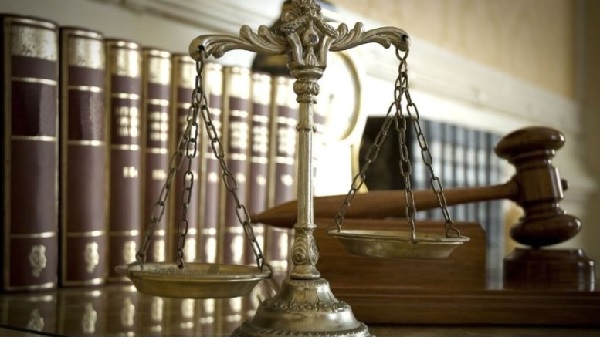As a democratic nation running on three arms of government, the importance of rule of law in Nigeria is of inestimable value both to the governed and those holding political positions. From preventing the abuse of power to enforcing judicial independence, there are many aspects whereby Nigeria benefits from the rule of law. This article will highlight the various aspects in which the rule of law is important in Nigeria.

The importance of the rule of law in Nigeria will be addressed below:
-
Enforces the Supremacy of the Law
The concept of the rule of law stipulates that the enacted laws of the country, as contained in the constitution and other authorized laws, govern the entire population in the country, whether they hold political offices or subjects. To this end, people in positions of power cannot just make arbitrary decisions according to their whims and fancies. Therefore, recognized laws of the land have prominence over all Nigerians, the governed, and those that govern alike.
-
Ensures the Certainty of the Law
Just as how citizens know of the rights bestowed on them as entrenched in the constitution, laws which clearly outline what constitutes a punishable offense in the country should be made known also. Without a clear-cut set of laws, an individual will not know when he’s in the wrong. But when there are laws that clearly state what constitutes an offense, the citizens will know what is wrong and refrain from them.
If, however, an individual is alleged to have committed an offense, such an individual is innocent until proven guilty, according to the rule of law. The rule of law further stipulates that every accused should be first charged for that offense, and then can only be punished if the charge is proven by an independent tribunal such as a court.
-
Upholds the Fundamental Human Rights of Citizens
The rule of law stipulates that the fundamental human rights of every Nigerian entrenched in the 1999 Constitution of the Federal Republic of Nigeria, are respected and protected. These rights and freedom include the right to life, right to private and family life, freedom of thought, conscience, and religion, right to peaceful assembly and association, freedom from discrimination, freedom of movement, freedom of expression and the press, right to own property and the right to liberty.
-
Prevents the Abuse of Power of those in Government
It is common knowledge that absolute power corrupts a man. The rule of law hence aims for separation of powers among the arms of government, which, accompanied by checks and balances, helps to check against such abuse of power. As too much power isn’t conferred on one arm of the government, it is easy for the other arms of government to perform checks and balances on each other. Thus, this prevents the abuse of power by those in government.
To illustrate how the rule of law ensures checks and balances, let’s consider how laws are made in Nigeria. First, the legislative arm of the government will introduce and subsequently vote on a bill. Thereafter, the bill will go to the executive arm. If the President feels the bill is good for the country, he signs it into law. But in the case the President feels otherwise, he vetoes the bill. However, if the judiciary arm of the government doesn’t agree with the executive arm’s veto, it can garner enough votes to override such a decision, and the bill becomes law.
-
Enhances the Efficiency of Government in the Discharge of Duties
The separation of powers in a democracy is one of the principles of the rule of law in Nigeria. If one arm of the government was to perform all the functions of governance, it would have been cumbersome and thus lead to an inefficient discharge of responsibility. But with the separation of powers among the executive, legislature, and judiciary arms of government, narrows down the responsibilities of each arm. With the responsibilities and powers distributed among the three arms of government, each arm can focus on the discharge of its constitutional responsibilities, which in turn improves the efficiency of government.
-
Enforces Judicial Independence
Rule of law ensures the separation of power among the three arms of government, that is, the executive, the legislature, and the judiciary. This separation of powers thus grants the judiciary arm of government independence to carry out its responsibilities without undue influences from the other arms of the government and partisan or private interests.
As the courts are free from external influences from other state actors, litigants, media, and powerful entities such as big corporations, it allows the judges the opportunity to efficiently discharge their constitutional responsibility to deliver fair and impartial judgments per the law. With this freedom bestowed on the judiciary, people can take their cases to courts with the knowledge that their disputes will be handled in line with the provisions of the law. So, the judges can decide on cases purely based on relevant facts (evidence) and the law. Therefore, inequality and discrimination in the courts will be avoided, thereby safeguarding the rights and freedom of the citizenry.
-
Ensures Equality before the Law
A principle of the rule of law is the equality of every citizen of Nigeria before the law. That is to say, irrespective of status, tribe, or circumstance, everyone must be treated equally without bias, privilege, or discrimination, in the face of the law. So, the courts are therefore responsible for providing equal justice, as well as equal protection to ensure no person or group is given undue privilege over others.
The rule of law is hinged on certain principles. These principles include the supremacy of the law, equality before the law, separation of power, avoidance of arbitrariness, procedural and legal transparency, accountability to the law, and fairness in the application of the law. The success of the rule of law in Nigeria, or any other democratic nation for that matter, depends on adherence to the aforementioned principles.